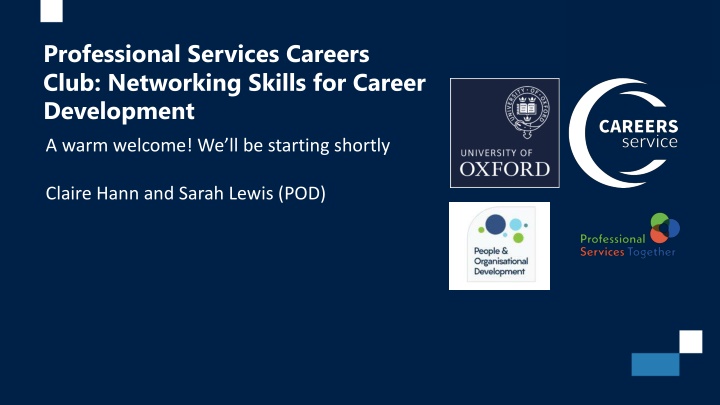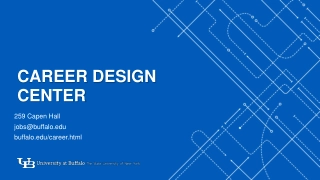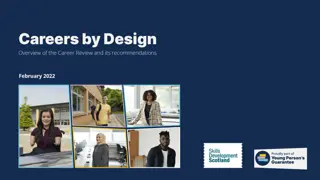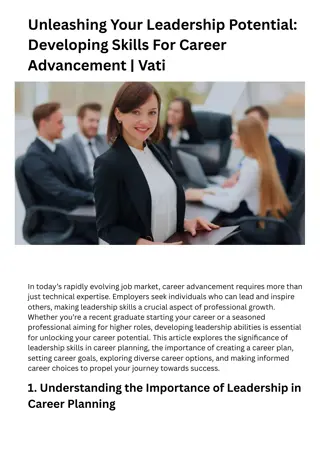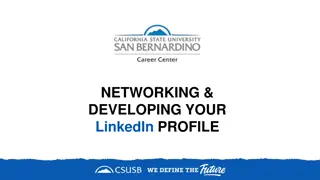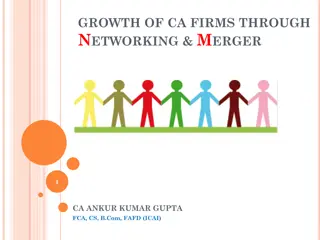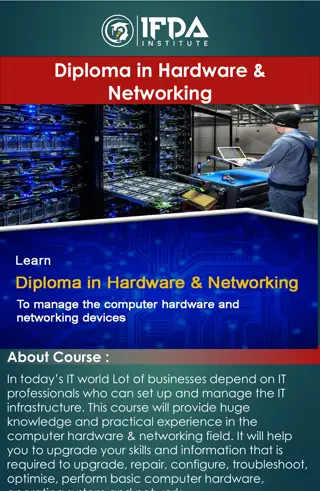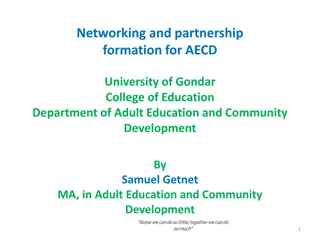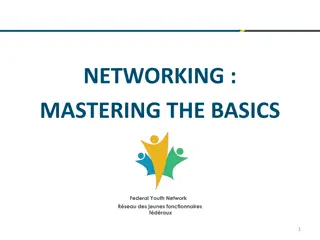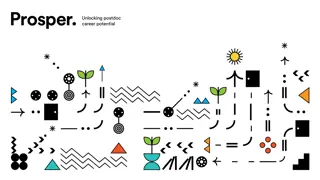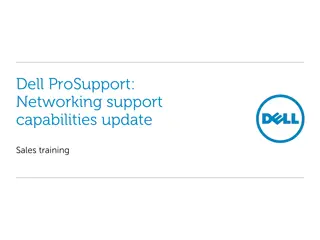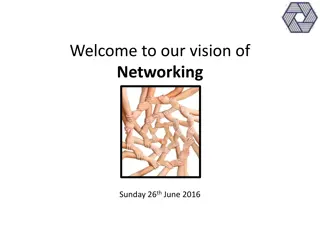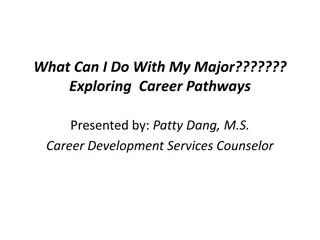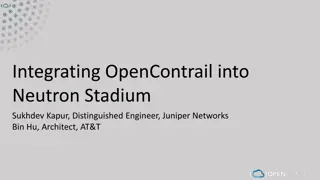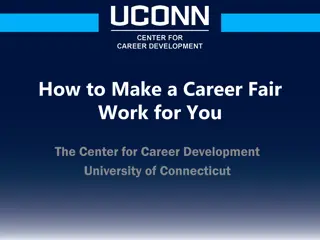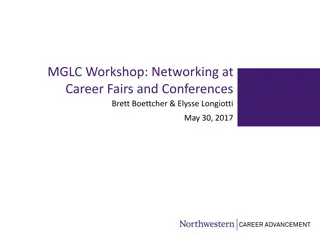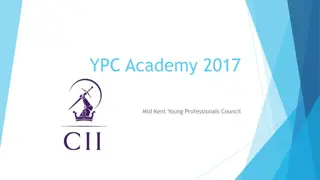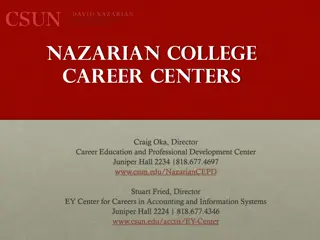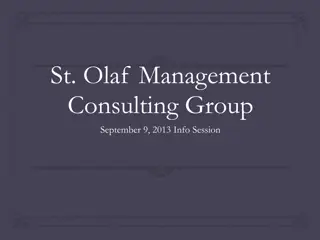Mastering Networking for Career Development
Learn about ethical networking, common myths, building networks, and connecting with others. Discover the art of reciprocal relationships to achieve professional goals. Join the Professional Services Careers Club to enhance your networking skills!
Download Presentation

Please find below an Image/Link to download the presentation.
The content on the website is provided AS IS for your information and personal use only. It may not be sold, licensed, or shared on other websites without obtaining consent from the author.If you encounter any issues during the download, it is possible that the publisher has removed the file from their server.
You are allowed to download the files provided on this website for personal or commercial use, subject to the condition that they are used lawfully. All files are the property of their respective owners.
The content on the website is provided AS IS for your information and personal use only. It may not be sold, licensed, or shared on other websites without obtaining consent from the author.
E N D
Presentation Transcript
Professional Services Careers Club: Networking Skills for Career Development A warm welcome! We ll be starting shortly Claire Hann and Sarah Lewis (POD)
Claire Hann People and Organisational Development Consultant Sarah Lewis People and Organisational Development Advisor Charlotte Smith - EDI and Strategic Projects Facilitator Radcliffe Department of Medicine Hilary Coyne-Barr People and Organisational Development Advisor and Oxford Coaching Network manager Use the chat function for comments and questions
How comfortable are you with networking? A C Which picture best describes how you currently feel about networking? B Answer in the poll
What words come to mind when someone mentions networking? Feel free to post one or two words in the poll, to form a word cloud.
Outline 1. What is (ethical) networking? 2. Common myths about networking 3. Your networks 4. How to connect with your networks 5. Networks at Oxford
What is (ethical) networking? Networking is the art of building reciprocal relationships that help individuals and the community as a whole to achieve their goals. Brilliant Networking, Steven D Souza The action or process of interacting with others to exchange information and develop professional or social contacts. Oxford Dictionaries Online Networking is simply people helping people The Squiggly Career (Tupper and Ellis 2020)
Common myths Networking
Self- promotion Common myths Networking
Self- promotion Anti- Common myths meritocratic Networking
Self- promotion Anti- Common myths meritocratic Networking Taking advantage of others
Self- promotion Anti- Common myths meritocratic Networking Taking advantage of others Bothering others
Self- promotion It s only for extroverts Anti- Common myths meritocratic Networking Taking advantage of others Bothering others
Less than formal interview It s only for extroverts Anti- Common myths meritocratic Networking Taking advantage of others Bothering others
Less than formal interview It s only for extroverts Added value Common myths Networking Taking advantage of others Bothering others
Less than formal interview It s only for extroverts Added value Common myths Networking Bothering others Reciprocal relationship
Less than formal interview It s only for extroverts Added value Common myths Networking Opportunity to help Reciprocal relationship
Less than formal interview Listening is key Added value Common myths Networking Opportunity to help Reciprocal relationship
Lets reframe the concept of networking... It s about talking to people/information seeking Building community - offer to help others - give and take It s about building relationships - not just building contacts Ask open questions, listen rather than talk It gets easier with practice
Lets reframe the concept of networking... Another way of thinking about it: (from careershifters.org) You don t 'network'. You connect. You bring real humanity to the process. Meet people. Ask questions. Share who you are.
Think about your existing networks Employer/Work Networks Personal Networks (family, friends, social) YOU Academic/Departmental Networks Community Networks (volunteering, sports, religion, local activity)
Where does networking happen? Formal Informal Face-to-face Online
How do you reach out to your networks? As with friendships, approach professional networking with emotional intelligence Networking is about conversation and generosity Preparation Action Follow-up
Preparation Introducing yourself 1. Who am I tailor it to resonate with them (eg common ground) 2. A question to start a conversation. Research it, and make it engaging. It's important to keep this brief.
Action Reaching out I m really interested in the work of the Central University / Division / Department etc. Would it be possible to have a brief chat on Teams, at a mutually convenient time please?
Action Reaching out What s the best career advice you have ever received? What are the best parts/challenges of your job? Do you know anyone else I should talk to?
Any questions? www.careers.ox.ac.uk
Networks at Oxford Networks at Oxford are a way to get to know people with a shared interest Connecting with people | People and Organisational Development (ox.ac.uk) Coming soon: Professional Networks toolkit, practical tools and resources to support creating and sustaining professional networks that foster networking, collaboration, and knowledge sharing among their members.
Networks at Oxford The benefits of being part of a network at Oxford: Charlotte Smith (EDI network) Hilary Coyne-Barr (coaching network)
Any questions? www.careers.ox.ac.uk
Thank you, one key takeaway and feedback: Evaluation Survey (surveymonkey.com)
